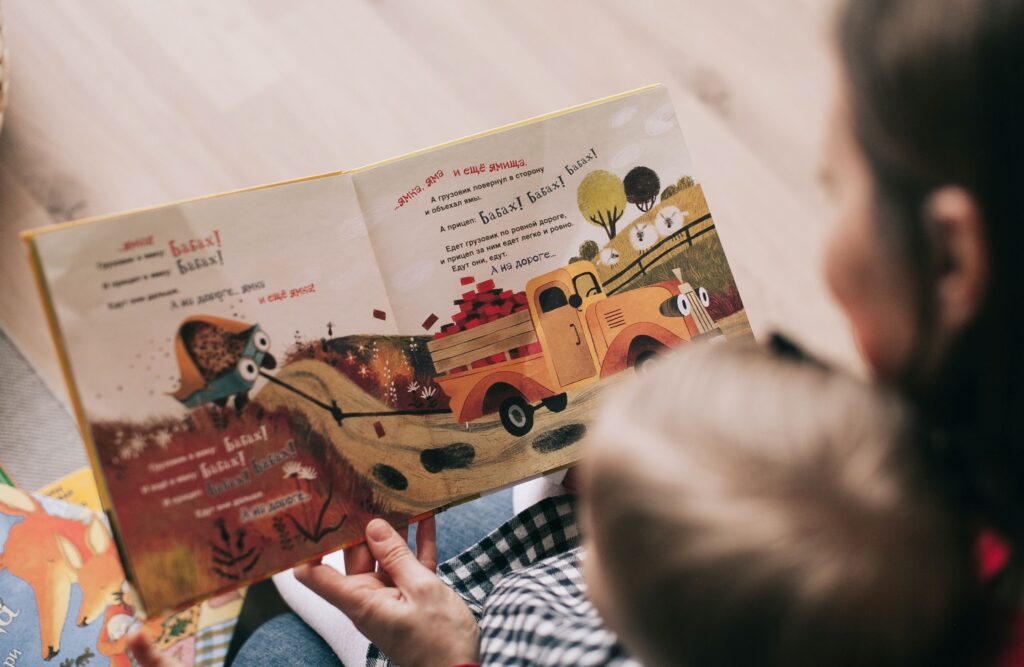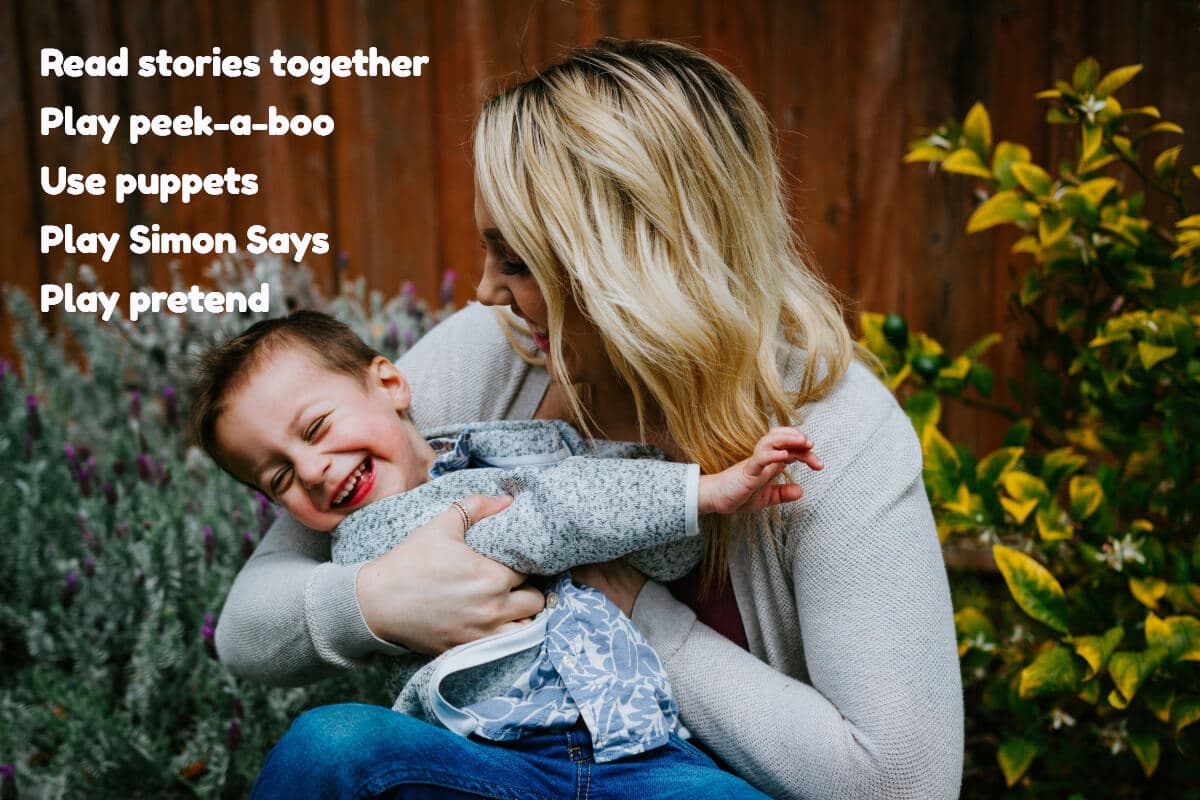All of us have been children at some point. However, none of us remember what it was like to be a toddler. Those little people between 1 and 3 years old? Yeah, them. They’re a special breed of human beings. During the toddler years, your kiddo is going through some significant changes. They’re growing and learning at an incredible rate – nearly 84% of toddlers start exploring purposefully during this period. During this time, they’re also starting to figure out how to communicate with the world around them. That’s why it’s so important to encourage your toddler’s talking development. Then, How to encourage toddler to talk then? Here are 5 playful ideas to start with!
Table of Contents
Why Play is Important for Toddler Talking Development
When your toddler is playing, they’re actually doing some pretty important things. They’re exploring their environment, testing out new ideas, and figuring out how the world works. All of this is essential for their cognitive development.
It will also help you strengthen your relationship with your child. When you play together, you’re building trust and communication, making it easier for them to come to you with problems or concerns later on in life.
In addition, play is also an excellent way to encourage your toddler to talk and use words. While they might not talk full sentences yet, they’re still learning how to put words together to communicate their needs and wants.
What to Expect with Toddler Talking
Every child is different, so it’s impossible to say precisely when your toddler will start talking. However, most kiddos will start saying their first words around 12 months old, and by 18 months, they should be saying around 10 words.
By two years old, most toddlers will have about 50 words. They’ll also start putting two words together to form simple sentences, such as “more milk” or “go outside.”
Of course, every child will develop at their own pace. My personal experience is, it is depends how much they receiving. If you talk a lot with them, they probably will start earlier. If you’re concerned about your toddler’s talking development, speak with your child’s doctor.
CDC provided a list of kids overall development milestone checklist, that is definitely worthy to check it out!
Concerns about Toddler Talking
If your toddler isn’t talking as much as you’d like, there’s no need to worry. Remember, every child is different and will develop at their own pace. Nonetheless, there are certain developmental milestones most toddlers reach as below (guideline only).
| Age 1 | Age 1~2 | Age 2 |
| Look for and can find sound source | Follow simple commands | Point to body parts and common objects. |
| Respond to their name most of the time | Get objects from another room when asked. | Follow commands like “Put your cup on the table.” |
| Follow your point when you say “Look at (the car)” | Point to objects so you will name them. | Say several 2-word phrases like “My toy”. |
| Say “da-da” to dad and “ma-ma” to mom. | Enjoy pretending (cooking etc.) | Be understood by mama about half of the time. |
If your toddler isn’t meeting these milestones, it’s essential to speak with their doctor. They might have a delay in their development and could benefit from early intervention services.
5 Play Ideas to Encourage Toddler to Talk
One of the top CDC recommendation on “Help your child learn and grow” is to respond positively and talk to your toddler by talking, reading and singing. For example, repeat and add to what he says. He may say “ba” for ball and you can say “Ball, yes, that’s a ball.” Now that we’ve gone over some of the basics let’s get into some fun ways you can encourage your toddler’s talking development.
1. Read stories together
Reading is a great way to build your toddler’s vocabulary. Plus, it’s a fun way to bond with your little one.
When reading, point to the pictures and name the objects you see. You can also ask your child questions about the story as you go along. For example, “What do you think will happen next?” or “Where is the character going?”
What are some of the books you should be reading together? Try to find ones with simple words and bright pictures. Dr. Seuss’s books are always a hit! The Cat in the Hat, One Fish, Two Fish, Red Fish, Blue Fish, Green Eggs, and Ham are all great options.

2. Play peek-a-boo
This classic game is a great way to help your child understand the concept of object permanence. It will also help them learn to use words like “where” and “gone.”
To play, sit across from your child and hold a blanket in upfront of your face. Then, say “peek-a-boo” as you drop the blanket and reveal your face. Next, wait for your child to say peek-a-boo back to you.
If they don’t say it right away, that’s okay! Just keep playing, and eventually, they’ll catch on.

3. Use puppets
Puppets are a great way to help your child learn new words and practice using them in sentences. Plus, they’re super fun!
You can use all sorts of puppets, from simple hand puppets to more complex ones like finger puppets or Marionettes. You can even make your own out of socks or paper bags!
Try using the puppet to imitate your child’s voice to get started. Then, have a conversation with the puppet using simple phrases. For example, “I’m sleepy” or “I want a drink.”

4. Play Simon Says
Another classic game that’s great for encouraging toddler talking is Simon Says. This game will help your child learn how to follow directions and understand basic concepts like “up” and “down.”
To play, start by saying, “Simon says touch your nose.” As you say this, touch your nose. Then, wait for your child to do the same. If they don’t, that’s okay! Just keep playing, and eventually, they’ll get the hang of it.
5. Play pretend
Pretend play is a great way to encourage your child’s imagination while also helping them to learn new words. It’s also a lot of fun!
Try using simple props such as dolls, stuffed animals, or toy cars to get started. Then, let your child take the lead and see where their imagination takes them.
As they’re playing, make sure to use many different words to describe what’s happening. For example, “The doll is sleeping” or “The car is driving.”
Conclusion
Encourage toddler to talk doesn’t have to be complicated. Using some of the play ideas listed above can help your child learn new words and practice using them in sentences.
To sum up, here are a few things to keep in mind when it comes to toddler talking:
- Toddlers typically start saying their first words around 12 months old.
- It’s normal for toddlers to go through periods where they don’t say much. This is usually nothing to worry about, and they’ll start talking again soon.
- If you’re concerned about your child’s development, it’s essential to speak with their doctor. They might benefit from early intervention services.
By following the tips above, you can help your child develop their communication skills and bond with them simultaneously!
About Me
Hi, there. I am Lin. Together with my husband and two kids, we live in the beautiful Netherlands in Europe. I am dedicated to self-development, creating quality time for the whole family, and fully supporting kids with their potentials with all I have learned from engineering, MBA, and 10+ years of working experience in the energy sector.



2 Comments
Comments are closed.